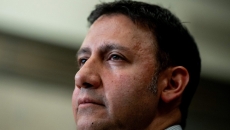Almost two-thirds of Canadians feel that inflation at the grocery store is getting worse, a new poll suggests, even as food inflation has been steadily cooling.
A new Leger survey found that almost 30 per cent of Canadians believe food inflation has been primarily caused by grocery stores trying to increase profit margins. Another 26 per cent think it’s mostly due to global economic factors, while one in five blame the federal government
Inflation on groceries was 1.4 per cent in April and helped drive overall inflation lower to 2.7 per cent, Statistics Canada said.
However, even low inflation still means prices are going up. And over the past three years, grocery prices have risen 21.4 per cent, according to the agency.
The major grocers have said they did not unduly profit from inflation, amid political and public pressure over the rising cost of food and other necessities.
A group of consumers organized a boycott of Loblaw-owned stores in May over frustrations with higher prices and industry concentration.
Seven out of 10 Canadians polled said they are aware of the ongoing boycott, and 58 per cent said they support it, but only 18 per cent say that they or someone in their household have joined the boycott.
The poll highlights rural and urban residents’ differing views on the boycott, and suggests it’s more difficult for those living outside an urban area to participate in a boycott of Loblaw-owned grocery stores.
Urban residents polled by Leger were more likely to say they support the boycott than suburban and rural residents, and were more likely to be participating in it as well.
About half of Canadians say it seems unfair that the boycott targets only Loblaw, and almost two-thirds of respondents don’t think the boycott will have an effect on grocery prices. Urban residents were more likely to say they think the boycott will help lower prices, with almost three-quarters of rural Canadians polled saying they think the boycott won’t impact prices.
For those taking part in the boycott, 40 per cent say they are turning to a “big box grocery store” such as Costco or Walmart, 31 per cent said they are turning to another national grocery chain like Sobeys or Save on Foods, and 23 per cent said they are shopping at an independent local grocery store.
Rural boycott participants were more likely to be shopping at an independent store than participants in urban and suburban areas.
Leger surveyed 1,519 Canadians between May 17 and May 19, asking about grocery inflation, the Loblaw boycott and grocers’ profits. Online surveys cannot be assigned a margin of error because they do not randomly sample the population.






